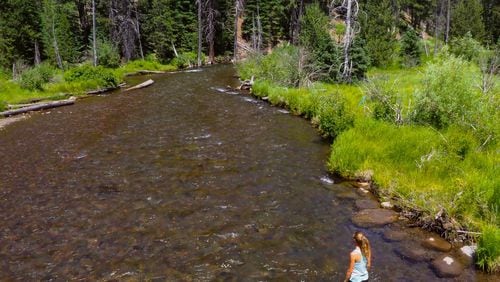Citing confusing regulation of development near streams, Georgia Senate Natural Resources Chairman Frank Ginn said the state needs to look at potential changes to how it approves buffers near the bodies of water.
The Danielsville Republican said he hopes a 17-member panel of lawmakers, officials with the state Environmental Protection Division and other water quality experts is able to sort out any questions about the way stream buffers are implemented and enforced.
The panel held its first meeting Thursday in Atlanta, where it heard from representatives from the EPD, the forestry industry, the state Department of Revenue and soil and water conservationists.
"We are to determine the best course of action to determine water protection while also maintaining property rights," said state Rep. Lynn Smith, R-Newnan, the chairwoman of the House Natural Resources Committee and co-chairwoman of the joint committee. "It's complicated, but it's always about the fair balance. And that is what we're seeking."
Depending upon the kind of development and type of groundwater, state law determines whether construction can abut a stream or if there needs to be some type of buffer nearby to deter adverse effects on the water.
But Ginn said those regulations aren’t always applied evenly.
For example, he said, agriculture development is exempt from having to follow the state’s stream buffer statute, and Ginn said he wonders whether that is fair to other types of construction projects in Georgia.
“Is there a difference between farm dirt and builder dirt?” Ginn asked EPD Watershed Protection Branch Chief Jac Capp.
Capp explained that the division’s job is to enforce the laws and referred him back to the Legislature to determine why that exemption exists.
“That’s why we’re here today,” Ginn said.
After the meeting, Ginn said he doesn’t want to adversely affect agriculture.
“It is the No. 1 industry, it is what makes all of us live,” he said. “But what I do see is a lot of inequities in what happens in the enforcement side of things.”
The committee will continue to meet through the end of the year, when it may produce a report to each chamber with possible recommendations for changes to the law.








